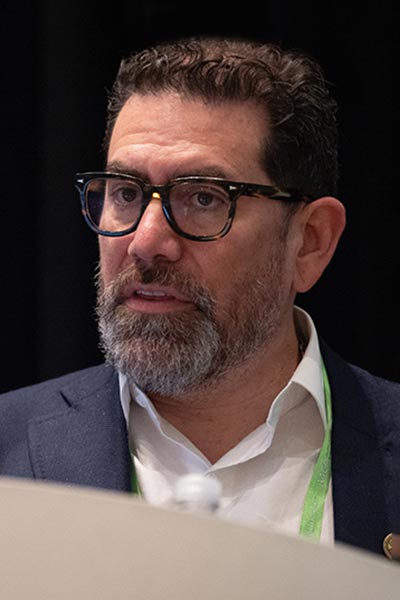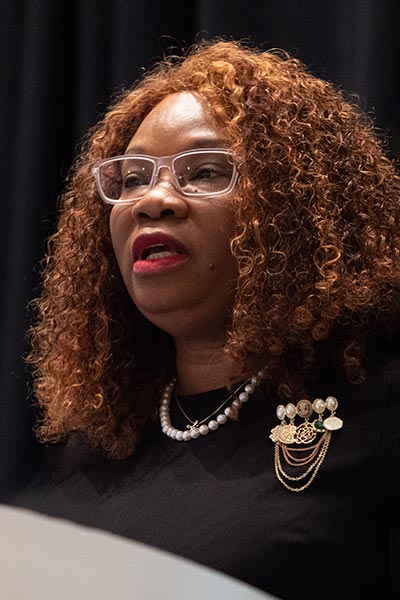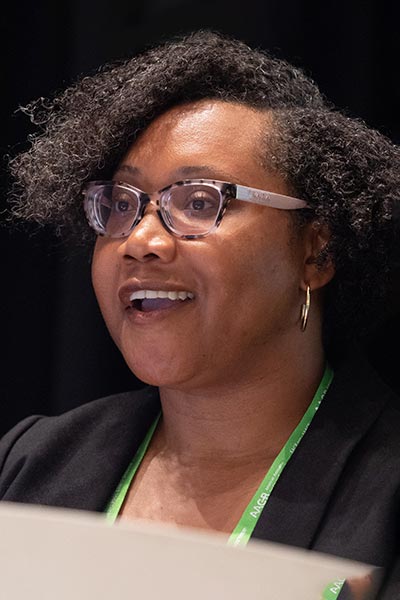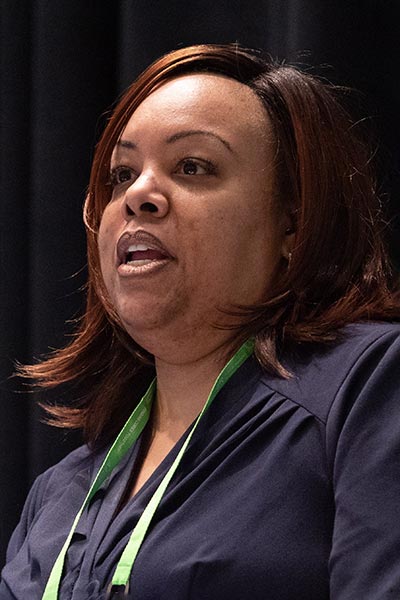Panel explores strategies to diversify participation in oncology clinical trials
The lack of representation of minorities and marginalized groups in oncology clinical trials continues to exacerbate cancer health disparities in these populations, according to a panel of experts who discussed strategies and initiatives to promote equity in clinical trials at the Annual Meeting.

The symposium, Minorities in Cancer Research Scientific Symposium on Innovation to Address Disparities in Oncology Clinical Trials, was presented Tuesday, April 18, and can be viewed on the virtual meeting platform by registered Annual Meeting participants through July 19, 2023.
“Disparities in clinical trial participation are deep among multiple different underprivileged and underrepresented populations,” said symposium co-chair Luis A. Diaz, MD, Head of the Division of Solid Tumor Oncology at Memorial Sloan Kettering Cancer Center and co-editor-in-chief of the AACR journal Cancer Discovery. “For example, demographic data from more than 200 pancreatic cancer trials between 2005 and 2020 showed that 85 percent of participants were white, 8 percent Black, and 6 percent Hispanic. If you look clinically at these populations, the Black population has the highest incidence and mortality from pancreatic cancer across any of these subtypes, yet the bulk of the work is being done in white populations.”

Folakemi Odedina, PhD, the session’s co-chair along with Diaz, said decentralizing clinical trials can help improve participant diversity.
“Studies have shown that the potential benefits of using decentralized clinical trials include faster recruitment, improved trial-participant retention, greater control and convenience for participants, and, importantly, increased participant diversity,” she said. “But in order to see those benefits, we have to start thinking about not only the barriers to participation, but we also have to start thinking about solutions.”
Decentralized clinical trials are patient-centered and fully integrated into health processes and health systems, including community health systems and organizations, explained Odedina, Professor of Oncology and Enterprise Deputy Director for Community Outreach and Engagement at the Mayo Clinic Comprehensive Cancer Center.
“That is what decentralization means — it’s about meeting participants where they are,” Odedina continued. “I think one of the errors we make is that we make clinical trials an ‘interaction’ when they need to be a ‘relationship’ with both the patients and their communities.”

Jamie Brewer, MD, Clinical Team Lead in the Division of Oncology 3 in the Office of Oncologic Diseases at the U.S. Food and Drug Administration, recommended several strategies to improve diversity strategies in oncology clinical trials, particularly in trials related to drug development.
“Diversity should be considered across demographic characteristics, and the characteristics of the study population should be considered throughout the drug development program,” Brewer said. “Diversity should also be considered in the context of where the drug development is taking place, the study sites from which the data will be collected, and the populations and communities that those study sites serve.”
A diversity plan should be created early in the process when planning a trial, said Brewer, noting that site selection is a key consideration that should be addressed in the plan.
“Site selection must be done in an intentional way, with equitable access and with the intent of enrolling a diverse trial population as the central focus,” Brewer said. “We should work to identify sites that are surrounded by and serve diverse populations. This process should also include the selection of diverse investigators from diverse backgrounds who practice in settings that are likely to enroll a population that is representative of the population that will be taking that drug or using that device.”

LeeAnn Bailey, MD, PhD, Chief of the Integrated Networks Branch at the National Cancer Institute’s Center to Reduce Cancer Health Disparities, discussed the importance of targeted outreach and engagement strategies to increase participation in clinical trials, and the importance of building trust within a community.
Several factors can influence an individual patient’s trust in research, she said, including cultural beliefs, education level, personal experiences, and community interactions.
“Trust is a multidimensional construct that is difficult to define and even harder to measure,” she said. “Despite the known importance of establishing trust in the community to optimize research outcomes, little is known about how to effectively improve trust among community members involved in research. We need innovative strategies and validated tools to measure this construct.”
More from the AACR Annual Meeting 2025
View a photo gallery of scenes from Chicago, continue the conversation on social media using the hashtag #AACR25, and read more coverage in AACR Annual Meeting News.

